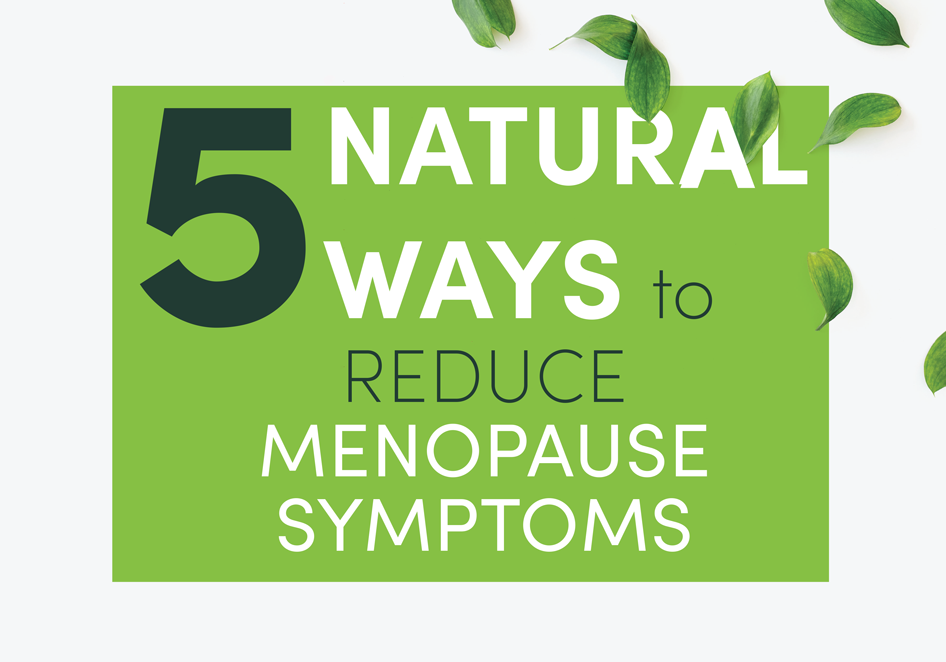
5 Natural Ways to Reduce Menopause Symptoms
Menopause is a natural phase that affects women in their late 40’s to 50’s.
It can cause uncomfortable symptoms like hot flashes, irritability, and night sweats.
This article explains what menopause is and provides natural ways to reduce its symptoms.
What happens during menopause?
Menopause is a natural phase in a woman’s life as her menstrual cycles come to an end.
It typically happens between 45–55 when the ovaries start to make less estrogen and progesterone — two hormones that control your periods and ovulation.
Menopause can affect your health in several ways, like:
Common signs of menopause include hot flashes, night sweats, vaginal dryness, insomnia, depression, mood swings, dry and thinner skin, hair loss, and a fall in libido (7).
Summary
Menopause typically occurs between the age of 45–55 when estrogen and progesterone levels fall. It can affect women’s health in many ways and can cause uncomfortable symptoms like hot flashes, night sweats, irritability, and others.
5 natural ways to reduce menopause symptoms
While you can’t avoid menopause, there are several ways to manage symptoms, like:
1. Avoid common trigger foods and substances
Certain foods and substances may trigger menopause symptoms.
The main culprits are caffeine, sugary foods, and cigarettes. However, some people find that alcohol and spicy foods can also make their symptoms worse (8, 9).
Because certain foods and substances affect people differently, you may consider keeping a symptom diary. This way, you can keep track of what affects your symptoms.
2. Drink plenty of water
A lot of women experience dryness during menopause because of a fall in estrogen levels.
To counter this, make sure you drink plenty of water — at least eight glasses a day.
Also, water may help combat bloating that affects some women during menopause.
3. Eat foods high in phytoestrogens
Phytoestrogens are compounds found naturally in some plant-based foods.
They can mimic the effects of estrogen and help balance your hormones.
Foods high in phytoestrogens include tofu, edamame beans, soybeans and soy products, sesame seeds, flax seeds, lentils, strawberries, cranberries, and wheat bran.
4. Eat plenty of calcium and vitamin D rich foods
Estrogen plays a vital role in keeping your bones strong and healthy.
Because its levels fall during menopause, it can increase your risk of fractures.
Calcium and vitamin D are two nutrients that help keep your bones strong and healthy, so it’s essential to get enough of these in your diet to reduce your risk of fractures (11, 12).
Calcium is found in plenty of foods, like:
- Milk, yogurt, cheese, and other dairy products.
- Green leafy veggies like kale, spinach, and collard greens.
- Other veggies like tofu, beans, and lentils.
Sunlight is your main source of vitamin D and is made by your skin when exposed to it. However, as you grow older, your body becomes less efficient at making vitamin D.
That’s why you should consider taking a vitamin D supplement and eating plenty of vitamin-D rich foods like oily fish (salmon, tuna, and mackerel), eggs, and cod liver oil.
5. Try a natural supplement
Certain supplements may help relieve menopause symptoms.
Unfortunately, the research behind these supplements is either new, limited, or still unclear.
This includes:
Summary
A few natural ways to reduce menopause symptoms are avoiding trigger foods and substances, drinking plenty of water, eating phytoestrogen-rich foods, eating plenty of calcium and vitamin D-rich foods, and possibly trying a natural supplement listed above.
_

Blog written by Ryan Raman MHSC, RD
Related Topics
| Food addiction: How it works | Can your gut bacteria affect your weight? | Is it Bad to Eat Before Bed? | A Quick Guide to Mindful Eating | Simple Ways to Lose Belly Fat | 5 Proven Ways to Fight Bloating |
